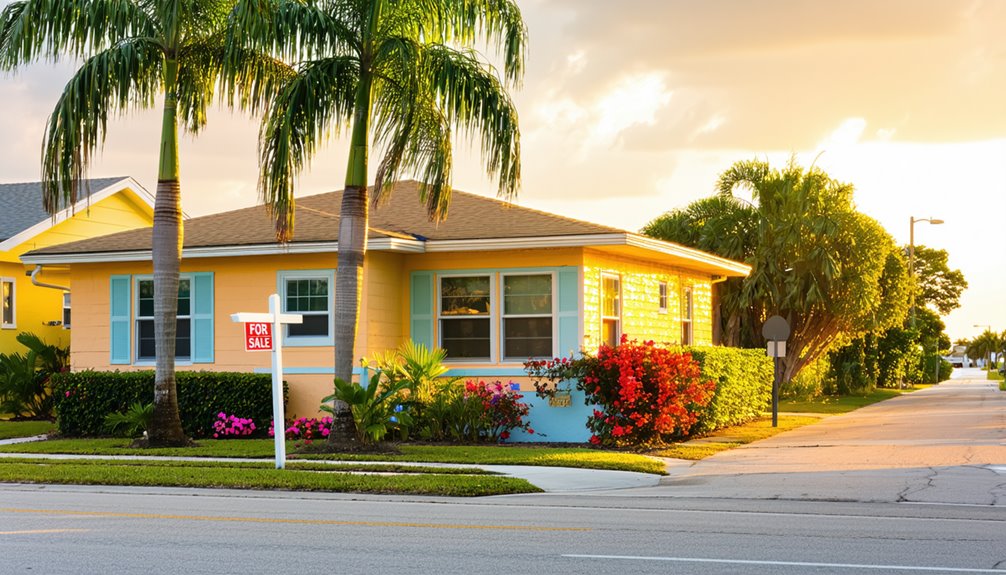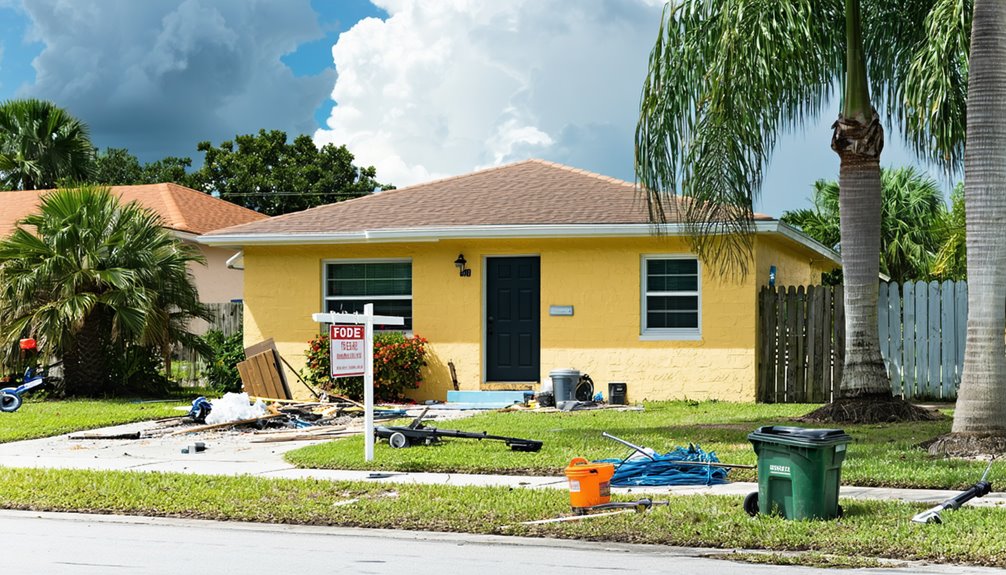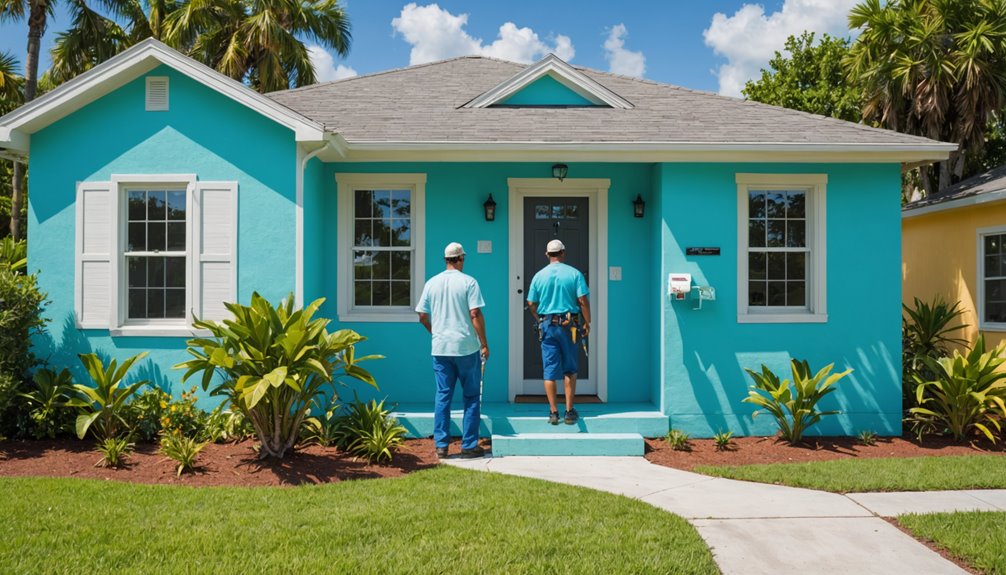Flipping houses in Florida neighborhoods can be a great way to build wealth if you plan carefully and execute the process effectively. The first thing to consider is location, as buyers in Sarasota, Lakewood Ranch, and Bradenton often prefer homes close to schools, shopping, and beaches. I can help you study the market and compare homes so you know where the best deals are.
The second step is looking at costs and repairs. You don’t need to make every update—just the ones that matter most to today’s buyers, like kitchens, bathrooms, and outdoor spaces. With the right plan, you can keep your budget under control and still create a home that buyers will love.
The third thing to consider is timing and the overall market. In a buyer’s market, you may be able to find homes that don’t need too much work and can sell quickly. I work with flippers to help them understand these changes, enabling them to make informed choices and achieve better returns.
Florida House Flipping Strategies for Morgando Realty ServicesKey Takeaways
- Focus on neighborhoods with over 20% population growth, as this enhances demand for flipped homes and improves their resale values.
- Utilize the 70% rule to ensure you pay no more than 70% of the after-repair value minus renovation costs for successful flips.
- Target cities like Tampa, Miami, and Jacksonville for profitable opportunities, considering their strong market resilience and buyer interest.
- Conduct a thorough market analysis to understand inventory levels and buyer affordability, minimizing risks in your flipping projects.
- Leverage data-driven investment tools and negotiation strategies to enhance budgeting accuracy and secure favorable purchase terms.
Understanding the Florida House Flipping
Understanding the Florida housing market is key for anyone interested in flipping houses in Florida neighborhoods. In 2025, the market is expected to improve, with about 2.46% of homes entering the market within 90 days. This means there could be good opportunities to find properties that are ready for a profitable flip.
Analyzing a potential flip begins by examining prices, demand, and local trends. While the total number of homes for sale increased by 9.3% year-over-year, median prices have slightly softened to around $410,000. Buyers are becoming more selective, which gives flippers the opportunity to invest wisely in neighborhoods with shifting demand.
Here’s a snapshot of current Florida market data for some key areas:
| Area | Average Home Value | Market Trend | Flip Opportunity |
|---|---|---|---|
| Lakewood Ranch | $609,256 | Strong interest | High |
| Sarasota | $498,500 | Balanced market | Medium |
| Bradenton | $420,750 | Slightly soft | Medium |
By understanding these trends and analyzing comps carefully, flippers can make smart decisions and increase their chances of success. Paying attention to market activity, buyer preferences, and neighborhood growth helps turn a simple flip into a profitable investment. If you want advice or guidance on analyzing flips in Florida, I’m here to share my knowledge and help you navigate the process.
Key Metrics for House Flipping Profitability
Key metrics for house flipping profitability are fundamental for investors aiming to navigate Florida’s dynamic real estate landscape effectively. Average gross profits for house flips in Florida are projected between $66,000 and $73,500 in 2025, while return on investment (ROI) rates hover around 28.7% to 30.4%. The 70% rule, advising flippers to pay no more than 70% of the after-repair value minus renovation costs, serves as a critical guideline.
Moreover, maintaining an average flip duration of 166 days is imperative to minimize holding costs. Investors must be vigilant about market conditions and pricing strategies, as these elements considerably impact profitability and overall achievement in the competitive Florida house flipping market. Additionally, understanding mortgage preapproval can help investors secure financing and improve their purchasing power.
With average gross profits estimated at around $70,250, understanding these metrics can significantly enhance an investor’s strategy.
Top Cities in Florida for House Flipping

Florida’s West Coast offers some of the best opportunities for flipping houses, especially from Tampa down to Naples. Tampa shines with rapid growth, family-friendly neighborhoods, and average flip profits exceeding $60,000, making it an ideal destination for investors seeking strong returns. Sarasota and Lakewood Ranch follow closely, attracting buyers with their schools, amenities, and vibrant communities.
Further south, Bradenton and Punta Gorda offer more affordable options with less competition, making them ideal for value-add flips. Naples, with its high-end market and steady buyer demand, appeals to flippers interested in luxury or resort-style properties. Each city along the Gulf Coast has its own unique characteristics, so understanding local trends is crucial for making informed investments.
When planning a flip on Florida’s West Coast, it’s essential to consider hurricane risks and storm preparedness. Renovation timelines and costs can be significantly impacted by weather, so it is necessary to budget for durable materials and conduct thorough inspections. By factoring in market trends and climate considerations, flippers can maximize profits while creating homes that buyers love.
Current Trends in House Flipping Activity
As the Florida housing market evolves, current trends in house flipping activity reveal both opportunities and challenges for investors. With 5,825 transactions in Q1 2025, Florida ranks high in flip volume, yet quarter-over-quarter declines indicate a cooling market. Notably, regions like Tampa and Orlando continue to experience rapid appreciation, prompting flippers to adjust their strategies amid rising housing inventory and increasing costs.
Notably, the total number of closings has stabilized at 58,601, indicating a shift towards buyer leverage in the market. Additionally, the Lakewood Ranch market has seen a 26.4% year-over-year decrease in closed sales, highlighting the importance of understanding local market dynamics for successful flips.
| Aspect | Current Status | Future Outlook |
|---|---|---|
| Transaction Volume | 5,825 in Q1 2025 | Slight decline expected |
| Median Gross Profit | $77,000 | Stable at $70,250 |
| ROI Percentage | 28-30% | Competitive, yet pressured |
| Key Markets | Tampa, Orlando, South FL | Continued interest |
| Challenges | Rising costs, inventory | Need for strategic buying |
Economic and Market Risks for Flippers

Maneuvering the Florida housing market presents significant economic and market risks for house flippers, making it imperative for investors to remain vigilant. Thorough insurance is essential to protect against renovation mishaps and Florida’s natural disasters, as inadequate coverage can lead to catastrophic losses. Market volatility further complicates the landscape, with recent price declines and regional fluctuations creating potential pitfalls for unwary flippers.
As affordability constraints limit buyer demand, careful market analysis becomes fundamental to avoid pricing homes out of reach. Moreover, shifting inventory levels requires agility in acquisition strategies to enhance profitability. Understanding these risks not only fosters better decision-making but also cultivates a sense of community among those committed to navigating Florida’s dynamic and authentic estate environment.
Additionally, local real estate trends play a critical role in determining the success of investments, making ongoing education essential for informed decision-making. The increasing demand for larger homes with outdoor spaces reflects a shift in lifestyle preferences influenced by remote work trends.
Strategic Considerations for Starter House Flippers
For starter house flippers in Florida, selecting the right neighborhood is essential for maximizing returns. Utilizing data-driven investment tools can improve decision-making, while effective negotiation strategies can secure properties at favorable prices. By combining these elements, new flippers can position themselves for success in the competitive housing market.
Additionally, current market conditions favor flipping houses for significant returns, making it an opportune time to invest. Understanding market dynamics, such as seasonal fluctuations and neighborhood trends, can further enhance investment strategies and outcomes.
Neighborhood Selection Criteria
Selecting the right neighborhood is a crucial factor for starter house flippers aiming to maximize their investment potential. Key criteria to take into account include:
- Location & Accessibility: Proximity to downtown areas and quality schools can significantly enhance demand. Tampa’s real estate market shows impressive resilience and growth, making it an attractive location for house flippers. Additionally, neighborhoods that prioritize community appeal often see faster sales and higher property values due to increased buyer interest.
- Demographics & Trends: Target neighborhoods with population growth and rising home values to guarantee a profitable flip. Areas with a population growth of 20% or more are promising for investment opportunities.
- Community Appeal: Emphasize neighborhoods with character, safety, and amenities that appeal to families and young professionals. Access to quality schools, parks, and libraries enhances living conditions and can lead to sustained demand for homes in these areas.
Data-Driven Investment Tools
Data-driven investment tools have transformed the house flipping landscape in Florida, enabling starter flippers to make informed decisions that improve profitability. Automated valuation models and platforms, such as Frontflip and Flipster, provide precise property estimates and renovation cost forecasts, helping flippers identify lucrative opportunities. Additionally, understanding market dynamics can significantly impact pricing strategies, allowing flippers to maximize their returns.
AI-driven tools, such as Zillow’s Zestimate, offer quick property insights, facilitating initial screenings. Furthermore, detailed rehab cost calculators improve budgeting accuracy, while risk assessment models flag potential pitfalls. By integrating market trend predictions, these tools enable flippers to uncover undervalued neighborhoods poised for growth.
Ultimately, leveraging data-driven resources not only minimizes risks but also fosters a sense of belonging within the vibrant Florida property community, guiding novice flippers toward successful ventures. Additionally, the use of Residential PropTech tools streamlines every stage of the real estate process, further enhancing the effectiveness of these investments.
Negotiation Strategies for Purchases
Mastering negotiation strategies is crucial for novice house flippers seeking to succeed in Florida’s competitive real estate market. Understanding buyer motivations helps flippers tailor their approach, enhancing deal success. Key strategies include:
- Crafting Offers Beyond Price: Focus on terms like closing timelines and financing options to strengthen offers. Notably, the average gross profit in Florida for house flipping can significantly influence how offers are presented. Additionally, understanding market trends can help flippers craft offers that align with current buyer expectations.
- Utilizing Inspection Negotiations: Capitalize on repair requests to negotiate more favorable terms while prioritizing cost-effective solutions. Knowing potential repair costs is crucial for effective negotiations and can save flippers from unexpected expenses.
- Emphasizing Flexibility: Strike a balance between firm and flexible terms to foster collaboration between buyers and sellers. Being adaptable in negotiations can also create opportunities to align with sellers’ goals and timelines.
Utilizing Data-Driven Tools for Successful Flipping
Aspiring house flippers on Florida’s West Coast can use data-driven tools to find the best neighborhoods and price points. Tampa, Sarasota, and Lakewood Ranch each have distinct markets, so understanding local trends is crucial for making informed investment decisions. By examining recent sales and inventory, flippers can identify properties with strong profit potential.
Predictive analytics, such as automated valuation models, help establish realistic prices while taking into account current interest rates and buyer demand. In areas like Bradenton, Punta Gorda, and Naples, analyzing renovation trends and understanding what buyers want ensures that our investment upgrades align with market preferences. Paying attention to these details can turn an average flip into a highly profitable project.
Local economic indicators, such as employment growth and new development projects, also influence success. Using this data, flippers can navigate changing markets with confidence and reduce the risk of overpaying or under-improving a property. By combining insights from analytics with knowledge of West Coast Florida neighborhoods, investors can make more informed decisions and achieve better returns.
| City / Area | Median Home Price | Flip Potential | Buyer Trends |
|---|---|---|---|
| Tampa | $450,000 | High | Families seeking schools and amenities |
| Sarasota | $498,500 | Medium-High | Retirees and luxury buyers |
| Lakewood Ranch | $609,256 | High | Families and community-focused buyers |
| Bradenton | $420,750 | Medium | First-time buyers and value-focused investors |
| Punta Gorda | $375,000 | Medium | Affordable options with low competition |
| Naples | $650,000 | High | Luxury and resort-style buyers |
Frequently Asked Questions
What Is the Best Time of Year to Start Flipping Houses in Florida?
Spring is considered the ideal time to start flipping houses in Florida, particularly due to heightened buyer demand, favorable market conditions, and strategic listing days, all of which contribute to maximizing potential profits for savvy investors.
How Do I Finance My First House Flip in Florida?
To finance an initial house flip in Florida, an investor might secure a hard money loan covering 90% of costs. This approach offers quick access to funds, enabling swift property acquisition and renovation in competitive markets.
What Are the Common Mistakes to Avoid When Flipping Houses?
Common mistakes to avoid when flipping houses include selecting a poor neighborhood, underestimating costs, neglecting local regulations, mismanaging project timelines, and failing to align renovations with buyer preferences, all of which can significantly impact profitability.
How Does Zoning Affect House Flipping in Florida Neighborhoods?
How can zoning impact house flipping in Florida neighborhoods? Zoning regulations dictate permissible property uses, directly affecting renovation options and profitability. Investors must carefully navigate these regulations to optimize potential returns while ensuring compliance with them.
How do property taxes influence flipping houses in Florida?
Property taxes vary widely by county, and they can significantly affect your overall profit margins. SMSavvy investors research local tax rates early to ensure their flip remains financially sound.
What Permits Are Needed for Renovations During a House Flip?
For renovations during a house flip in Florida, necessary permits include those for structural changes, plumbing, electrical, HVAC, and roofing work. Compliance with local codes and inspections guarantees a successful and legally sound property transformation.
Conclusion
Flipping houses in Florida can be very rewarding when you know what to look for. Understanding the local market in Sarasota, Lakewood Ranch, and Bradenton enables you to make informed choices and avoid costly mistakes. Paying attention to trends and buyer preferences can turn a simple flip into a profitable project.
Success comes from planning carefully and knowing which updates will make the most significant difference. Tracking costs, timing your purchase and sale, and studying what buyers want all increase your chances of a good return on investment. Even minor improvements can make a house more appealing and help you sell faster.
I love sharing my knowledge and supporting flippers as they start their projects. Working together, we can analyze markets, plan renovations, and find great opportunities in Florida neighborhoods. If you want guidance or advice on flipping houses, reach out—I’m happy to help you succeed.
References
- https://www.housecanary.com/blog/florida-housing-market
- https://usefrontflip.com/blog/flipping-houses-in-florida-2025-key-stats-and-market-trends
- https://fairfigure.com/blog/house-flipping-statistics
- https://www.realtor.com/advice/buy/top-states-flipping-houses-profits-money/
- https://resimpli.com/blog/house-flipping-statistics/
- https://jbrec.com/insights/tariffs-fix-and-flip-trends-2025-real-estate/
- https://movingtofloridaguide.com/understanding-the-florida-real-estate-market-from-the-experts.html
- https://ark7.com/blog/learn/cities/real-estate-flipping-in-florida/
- https://www.badeloftusa.com/press-release/the-best-states-for-house-flippers-2025-study/
- https://www.housecanary.com/blog/housing-market-predictions







